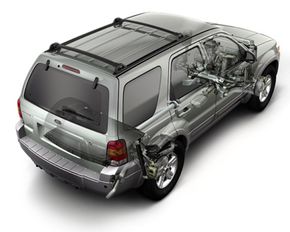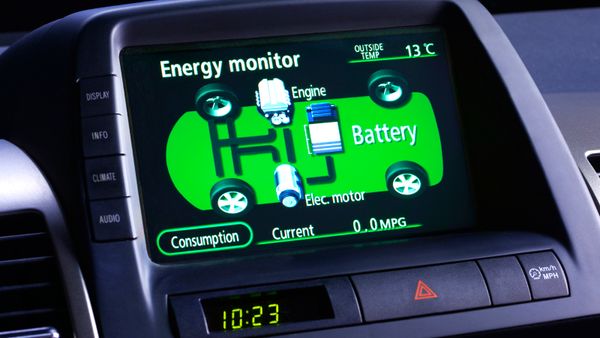The average American car today gets about 20 miles per gallon (mpg) of gasoline. Eighty years ago, Henry Ford's Model T got 25 to 30 mpg and that car could run on gas or ethanol. What happened? In the decades since the Model T, car technology, speed, safety and comfort have improved tremendously. But in terms of fuel economy, we're still decades behind. With concerns about gas prices, global warming and air pollution, fuel efficiency has already become a point of concern for car buyers. Let's explore the question that a lot of people are asking: Can a car get 100 miles on a single gallon of gas?
We're not the only ones asking the question. Google -- yes, the search engine Google -- is trying to find out.
Advertisement
On June 20, 2007, Google announced that its founders' philanthropic organization, Google.org, is modifying gas-electric hybrid vehicles like the Toyota Prius to try to breach the 100 mpg threshold. The project, called Recharge IT, is collaborating with other companies and researchers, including Pacific Gas & Electric. They've handed out $1 million in grants to think tanks, educators, advocacy groups and researchers to advance the hybrid cause. Another $10 million is available to researchers who offer worthy proposals.
RechargeIT features a standard Prius that's been modified to connect to a 120-volt electrical outlet. Two of these vehicles are being tested against two standard Prius hybrids. Together the two plug-in Prius hybrids are averaging 73.6 mpg, while the standard Prius hybrids are ticking along at 40.9 mpg [Source: Google]. The plug-in hybrids have also shown a significant decrease in CO2 emissions.
A second, intriguing part of the Google project is that they're working on vehicle-to-grid (V2G) technology, which lets cars "sell" back excess stored-up electricity to the local utility's electric grid. The vision behind this technology is discovering ways to harvest energy that's produced when driving a car -- engine heat, friction from breaks, solar energy -- and feed that energy back into the car and the electric grid. The end result is a more fuel-efficient car that can also lower your home's energy bill.
Google's hybrid, which requires more sophisticated batteries than those used by conventional hybrids, is not the only one of its type. Conversion companies exist that, for several thousand dollars, will turn your Prius or Ford Escape Hybrid into a plug-in hybrid. Others sell do-it-yourself kits over the Internet, though a significant amount of automotive expertise is recommended. This is not a recent phenomenon. For decades people have been creating their own electric, solar-powered and hybrid cars and modifying existing cars to go 100 miles per gallon or more (recently the Honda Insight has proved a popular choice).
So Google's trying to reach the 100-mpg threshold and many other organizations and amateurs are as well, but is 100 mpg feasible without an expensive conversion kit? Let's find out.
Advertisement



